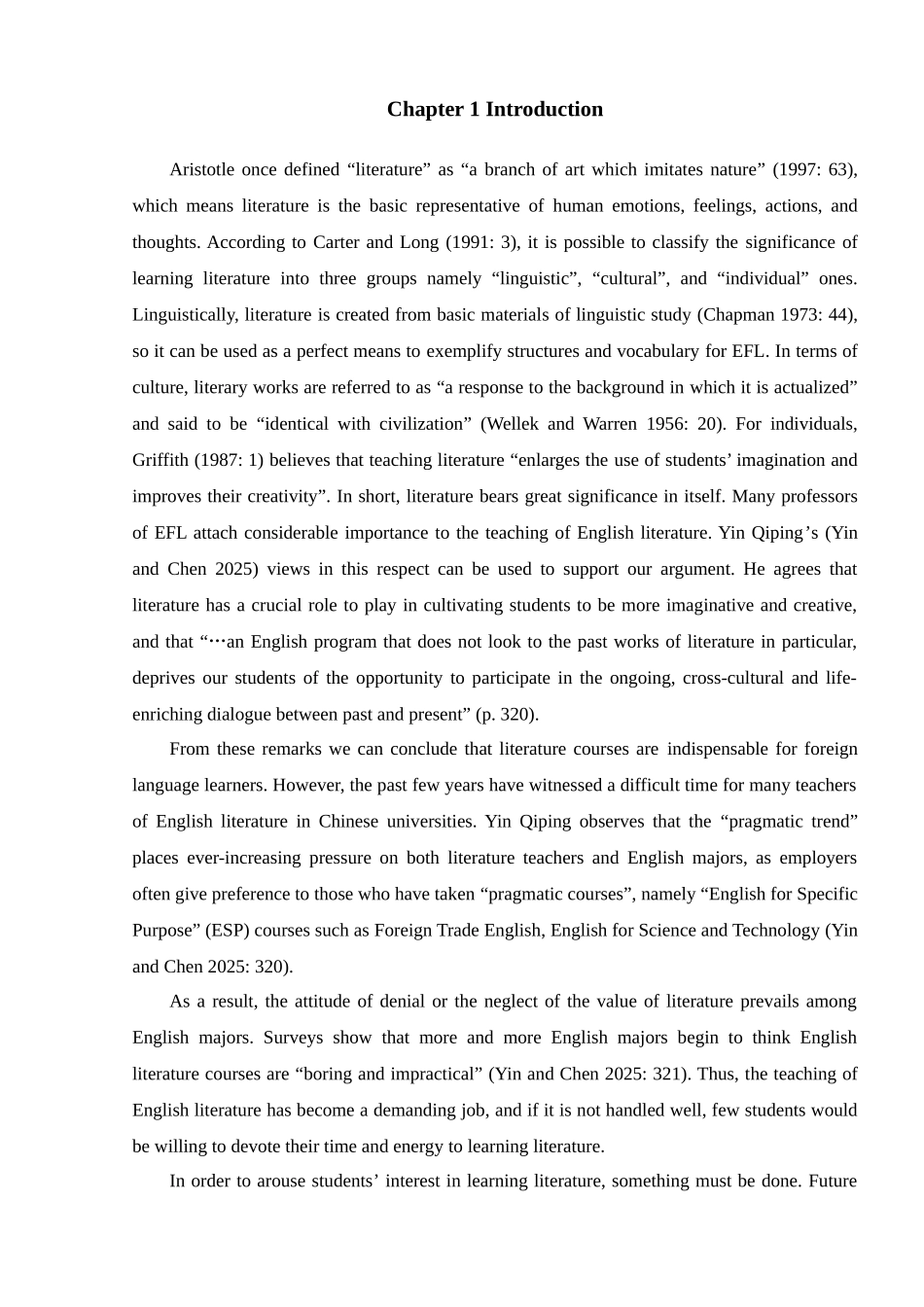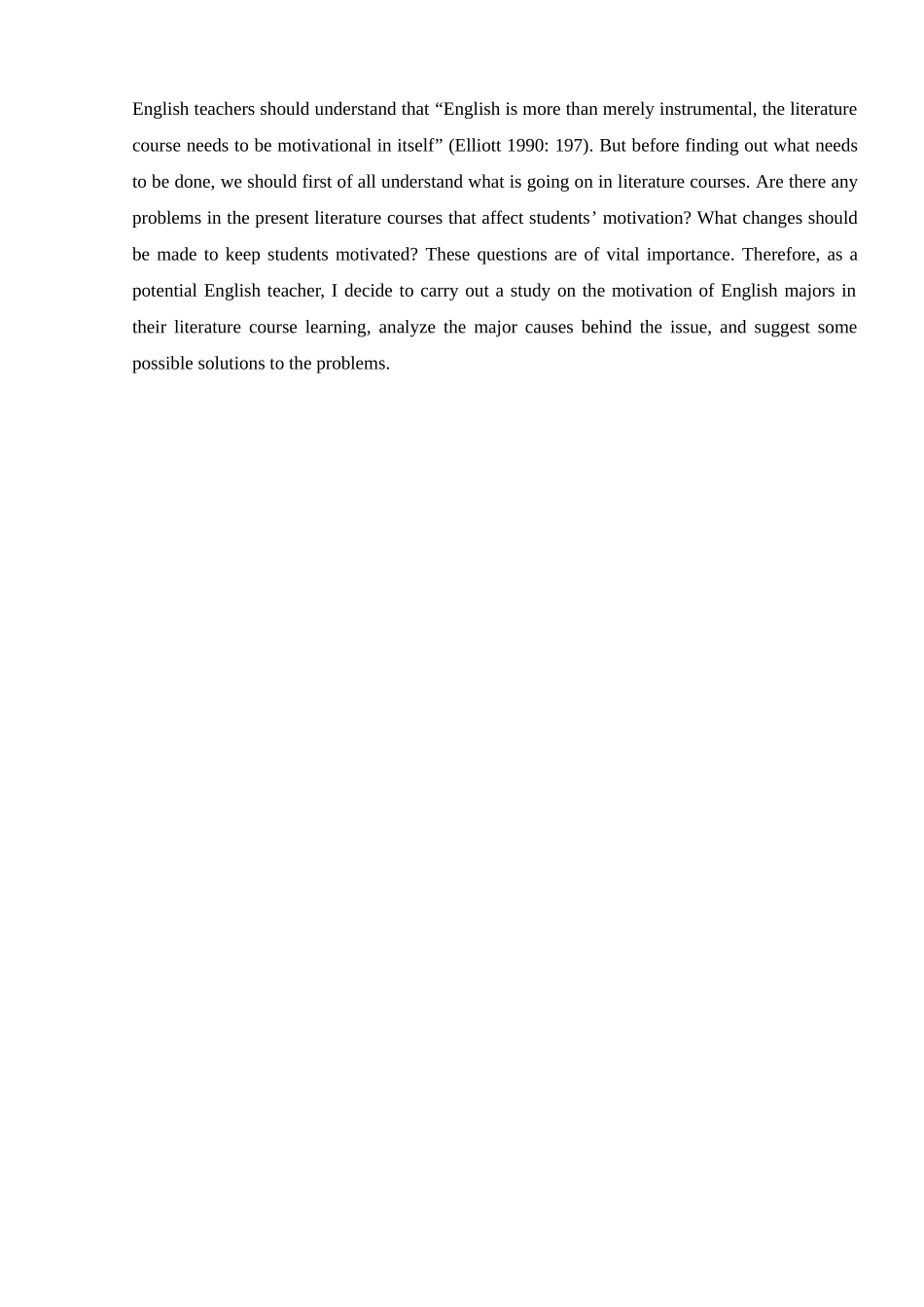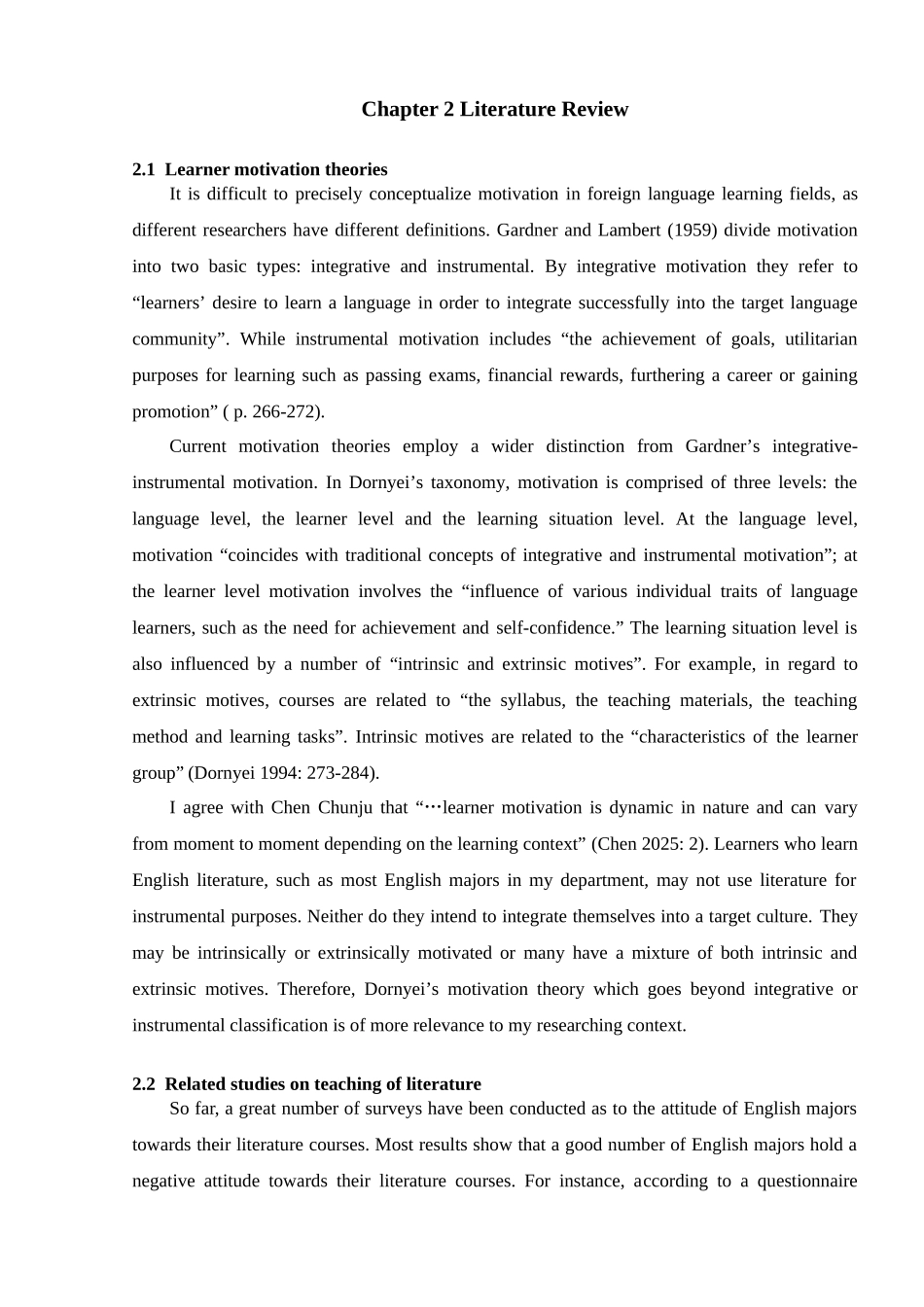Chapter 1 IntroductionAristotle once defined “literature” as “a branch of art which imitates nature” (1997: 63), which means literature is the basic representative of human emotions, feelings, actions, and thoughts. According to Carter and Long (1991: 3), it is possible to classify the significance of learning literature into three groups namely “linguistic”, “cultural”, and “individual” ones. Linguistically, literature is created from basic materials of linguistic study (Chapman 1973: 44), so it can be used as a perfect means to exemplify structures and vocabulary for EFL. In terms of culture, literary works are referred to as “a response to the background in which it is actualized” and said to be “identical with civilization” (Wellek and Warren 1956: 20). For individuals, Griffith (1987: 1) believes that teaching literature “enlarges the use of students’ imagination and improves their creativity”. In short, literature bears great significance in itself. Many professors of EFL attach considerable importance to the teaching of English literature. Yin Qiping’s (Yin and Chen 2025) views in this respect can be used to support our argument. He agrees that literature has a crucial role to play in cultivating students to be more imaginative and creative, and that “…an English program that does not look to the past works of literature in particular, deprives our students of the opportunity to participate in the ongoing, cross-cultural and life-enriching dialogue between past and present” (p. 320).From these remarks we can conclude that literature courses are indispensable for foreign language learners. However, the past few years have witnessed a difficult time for many teachers of English lite...


